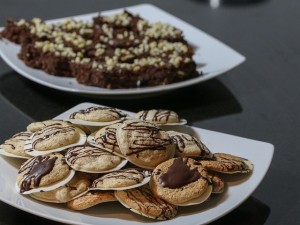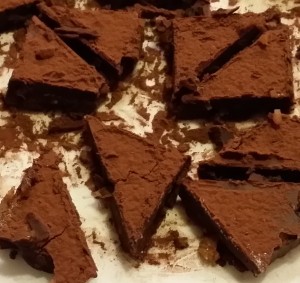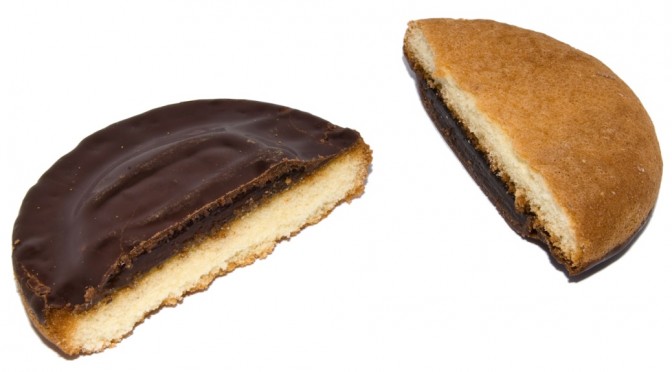National Biscuit Day
Apparently it’s National Biscuit Day (29 May) and the ones we like reveals spooky stuff about us, says one utterly pointless survey. For instance, shy Rich Tea biscuit lovers are most likely to come from East Anglia and watch TOWIE (if you don’t know what this stands for, you are best left in the dark). In my mind, the best place for biscuits is either dunked in a cup of builder’s tea – albeit in a fine bone china cup, or scrunched up in a double thickness, double chocolate, cheesecake base – yum!
McVitie’s Biscuit Personality Survey
The “nation-wide” survey (that didn’t ask me) portrays Digestive biscuit devotees as “fun-loving”, Fruit Shortcake savourers as not nuts, but “charming”, whereas Ginger Nuts describe themselves as “feisty”, and Jaffa Cake crunchers self-identify as “cheeky”. As for HobNobs…
HMCE & VAT on Jaffa Cakes

As to Jaffa Cakes, well they are biscuits, not cakes, unless you are a tax man working for HMCE and trying to assess VAT on them as “luxury” rather basic zero-rated foodstuffs. Jaffa Cakes, in 2012 the UK’s most popular “biscuit”, have been made by McVitie’s since 1927, currently at the rate of 2000-a-minute. Whilst there is no VAT on a basic biscuit or any cake, add chocolate to a biscuit and it becomes a luxury, whilst presumably , chocolate cake is still a basic nutritional need! So McVities have always defined Jaffa Cakes as, well, cakes – hence their name, despite being sold in the biscuit aisle. Her Majesty’s Customs and Killjoys tried to define them as biscuits in a court battle against United Biscuits (now owned by Turkish Yildiz bought for £2bn at the end of 2014) from 1991 but lost in a tribunal review.
“One of the critical aspects of the argument was related to what happens when biscuits or cakes go stale. The court found, as anyone who has forgotten to put the lid on their biscuit tin properly will know, that when biscuits go stale they go softer. But when cakes go stale they go harder. The test was done, and when Jaffa cakes are left exposed to the air they get harder. So Jaffa cakes are definitely cakes and not biscuits.” – Jaffa Cake fan site
Biscuit Etymology

As a kid I called them bikkits, some call them biskwits, but what is the etymology of “biscuit”, or the linguistic cookie crumb trail of koekje.
Us Brits know what a biscuit is, indeed a cookie is a biscuit too, but are all biscuits cookies? The linguistic division here is similar to how British crisps are baked and dried potatoes but chips are fries, whilst in the USA and the Netherlands, fries are chips, but chips are crisps!
The word comes from the Latin for “twice cooked”, bis-coctus (coquere=”to cook”) which ended up in Middle French as bescuit. This, in turn, ended up in 14th century Middle English as bisquite. Put simple, it means a twice baked product, first cooked then dried out.
Meantime, in Holland – more correctly the Netherlands, as my partner keeps reminding me, around the turn of the 18th century the Dutch adopted koekje, “little cake”, to refer to the same hard-baked foodstuffs, that have become cookies in the US. The slight pedantic culinary difference is that the Dutch “cookie” is a baked product that rises and cools, whilst the English “biscuit” has remains flat, having no raising agent.
National Biscuit Day needs no excuse to indulge in cake, cookie or biscuit, or all three!
